

Address: P.O. Box 31017, Pioneers Park, Namibia
Phone: +264 (0)63 693012
Fax: +264 (0)63 693013
Email: admin@nadeet.org
Website: www.nadeet.org
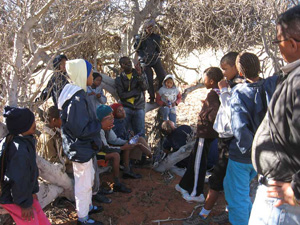
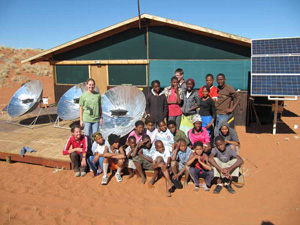
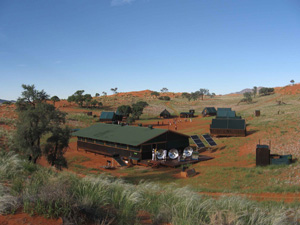
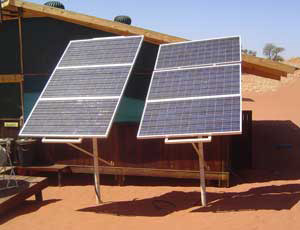
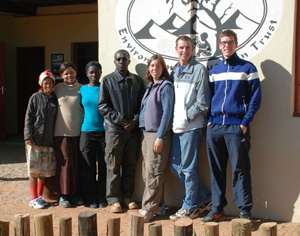
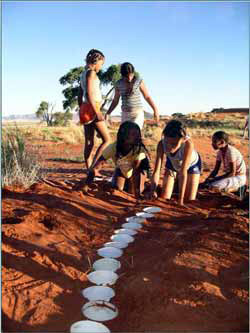
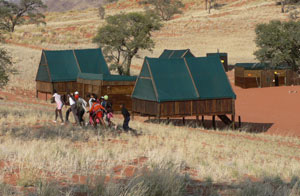
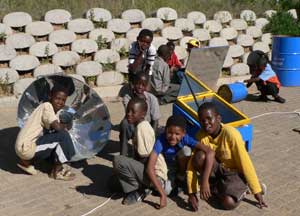
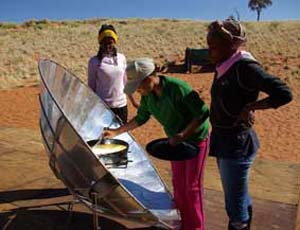
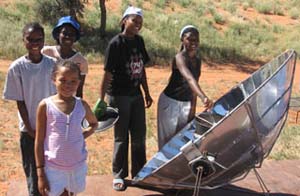
Profile
NaDEET is a small NGO located on NamibRand Nature Reserve in the Namib Desert, aimed at empowering and educating Namibians for a sustainable future. Our main focus is conducting environmental education programmes at NaDEET Centre. Built in a dune valley, NaDEET Centre is a model and experience in sustainable living, as activities and living needs are joined to create a truly environmental education programme. NaDEET is registered in Namibia as a non-profit trust.
Overall Aims
NaDEET aspires for young people to choose to participate in finding viable solutions to their local and national environmental issues to create a healthy and sustainable future for all. NaDEET has set forth the following aims to guide the organisation:
- To provide a non-profit environmental education service for all, especially the underprivileged learners and educators of Namibia, based in the beauty and magic of the Namib Desert.
- To build capacity and know-how at all levels of the environmental education sector: focussed on addressing relevant environmental issues, supporting the Namibian school curricula and practicing hands-on, experiential learning and learner-centred educational methods.
- To engage in education, advocacy and awareness of the critical role of sustainable living in a finite semi- arid environment.
Projects
NaDEET has established three major projects to fulfil the abovementioned aims. They are:
- Environmental Education at NaDEET Centre
- Environmental Literacy Projects
- Capacity Building and Tertiary Level Support
Funding
Funding for all of NaDEET’s projects has come from:
- Private individuals, both Namibian and foreign.
- Namibian grant making organisations such as the Namibia Nature Foundation (NNF) and Nedbank – Go Green Fund.
- Overseas grant making and ‘Friends of NaDEET’ organisations including deSteen in Holland, Marseilles-Namibie in France and the Netherlands Delegation to UNESCO in Paris.
- Participating Namibian school groups.
ENVIRONMENTAL EDUCATION AT NaDEET CENTRE
Profile
NaDEET Centre offers a variety of environmental education programmes tailored to age / grade level groups between 7-20 years / 3-12 grade which are based on the Namibian National Curriculum for Basic Education. Participants stay at NaDEET Centre for 3-5 days. During this time NaDEET Centre engages participants in hands-on, experiential, outdoor learning in a desert environment. By using an innovative design, alternative technology and living techniques the Centre is a model and an experience in sustainable living.
NaDEET Centre is open to all Namibians- primarily children. Several schools in Namibia have made NaDEET Centre their annual outing. NaDEET Centre has hosted over 3 000 learners in 100 programmes since 2003.
Objectives
- To provide meaningful environmental education in the Namib for all Namibian learners regardless of income.
- To create an opportunity for learners to reflect on their environmental and living situations, to experience alternatives and to react appropriately.
- To engage learners in hands-on, experiential learning activities that link their school subjects with the environment, their health and their role as citizens.
- To address the environmental crisis (i.e. water shortage, desertification, poverty, HIV and AIDS) in Namibia together with the future generation.
Putting the Philosophy into Practice
A fundamental component of making sustainable living successful is teamwork and cooperation. At NaDEET Centre, the programme participants are divided into six Sustainable Living Teams, to cooperatively manage their basic living activities together.
- Water
- Learners investigate this natural resource through water cycle experiments and 24-hour water counts.
Each Living Team shares one ablution facility, which contains a bucket shower, washbasin and 140 litre tank of water. They decide how the water is to be used (i.e. how much for drinking, showering, etc.). Living Teams keep a daily journal where they record their water usage and compare it to other Teams.
- Energy
- Learners explore alternative energy sources for electricity and cooking through solar experiments, daily monitoring of electricity and solar cooking. Barring rain, no fossil fuels are used at the Centre.
- Living Teams alternately are responsible for the preparation and clean up of meals. All meals are prepared using parabolic solar cookers, solar ovens and fuel-efficient stoves with recycled paper fire bricks.
- Solar power is used to provide electricity for lights in the main building, accommodation units and ablutions and for a refrigerator and freezer.
- Waste
- Learners explore the three R’s: Reduce, Reuse and Recycle through various activities, such as making recycled paper fire bricks and making waste paper baskets from old plastic bags.
- In Living Teams, participants help to manage the group’s waste by separating
and placing the rubbish in the correct area to recycle and compost.
- Biodiversity
- Biodiversity is explored through collecting and releasing small animals using
various trapping methods, taking nature walks and discovering the adaptations
of plants and animals through creative artwork.
Funding
The daily cost per person incurred by NaDEET is N$150. One of our priorities is that NaDEET Centre is accessible to all regardless of income. Most groups pay an average of N$20 per person per day and therefore NaDEET and many children rely heavily on donations.
ENVIRONMENTAL LITERACY PROJECTS
Profile
To promote and encourage environmental learning and literacy, NaDEET aims to provide relevant written materials. These include our core project, the Bush Telegraph, and other complimentary projects such as activity books.
The Bush Telegraph
The Bush Telegraph is an environmental literacy project that has just completed its fifth year. It is a youth mini-magazine that is available at no cost to all learners, educators and interested citizens in Namibia. Since its original inception as the Carnivore Times, the now Bush Telegraph has grown from a distribution of 500 to over 13 500. More than 100 educators receive multiple copies and are using the Bush Telegraph in the classroom as a supplementary learning material.
The Bush Telegraph is produced two times per year. Issues cover a variety of environmental topics relevant to the Namibian context. Readers are engaged with the topic through articles, activity suggestions, games, contests and pictures.
Objectives
- To provide learners with a written material conducive to raising awareness and understanding about environmental issues in Namibia.
- To maintain and foster a forum for learners, teachers, and environmental education practitioners to learn and share with each other about the Namibian environment and the challenges it faces.
- To provide educators with up-to-date learning support materials written for learners to complement the school curriculum.
Readership
The readership of the Bush Telegraph is primarily youth between 10-18 years of age as well as teachers, youth officers and environmental educators. There are currently more than 13 500 subscribers on the Bush Telegraph mailing list from all regions of Namibia. The Bush Telegraph is also distributed via various partner organisations including the Directorate of Youth Development and the Namibian Environment and Wildlife Society (NEWS) in their Roan News magazine as its official children’s environmental supplement. Readers are also able to access the Bush Telegraph via our website as a downloadable PDF file.
Funding
The Bush Telegraph was initially funded by the British High Commission. This funding continued through 2003, until they discontinued funding due to the financially unsustainable nature of the project. The project continues to need funding, as one of the key aims of the magazine is to make it available at no cost to all. NaDEET continues to seek funding for each issue of the Bush Telegraph.
CAPACITY BUILDING and TERTIARY LEVEL SUPPORT
Profile
In line with government policy, NaDEET aims to build the capacity of Namibians in environmental education (EE). This field is underdeveloped in the country and there is a lack of sufficiently qualified environmental educators. To fulfil this aim, NaDEET has partnered with different organisations to contribute to capacity building on several levels, as well as maintained an ongoing focus on NaDEET’s own internal capacity building. The core programme is in partnership with the Nature Conservation Department at the Polytechnic of Namibia, providing tertiary level practical support.
Tertiary Level Practical Support
NaDEET aims to fill a gap in the environmental education opportunities available for tertiary level education. Currently there is no complete course of study or accreditation in the field offered in Namibia. However, various tertiary level institutions do offer academic courses in fields of study related to EE.
NaDEET’s tertiary level training provides practical, hands-on experience in outdoor teaching, programme planning, Centre logistics and activity development. Through a six-month programme, the student is exposed to practical knowledge and experience that is to help them prepare for a career in EE.
To date, NaDEET has hosted seven students from the Nature Conservation Diploma Course. In addition to the hands-on experience the student receives at NaDEET, the student is also required to complete a research project relevant to NaDEET. In the past this has been projects such as studying the effect of re-usable waste water on tomato plants.
Internal Capacity Building
NaDEET continues to focus on internal capacity building through “on the job” training of educators. This includes participation in adult courses held at NaDEET, as well as ongoing critical analysis of one’s work. Training is also done in teaching, activity design, programme cohesiveness, classroom management, creating a dynamic group atmosphere, time management and subject matter knowledge.
Other Programmes Include
- Contributions to the adult, semi-distance year-long Namibian Environmental Education Certificate (NEEC) Course with the Polytechnic of Namibia. NaDEET staff involvement has included development, tutoring, teaching of the course and external moderation.
- Hosting and participation in adult learning groups such as the Desert Guiding Course by the Namibian Academy for Tourism and Hospitality (NATH), Windhoek College of Education and First Aid Certification Course.
NaDEET continues to actively contribute to the Namibian Environmental Education Network (NEEN) and to the Environmental Education Association of Southern Africa (EEASA) through conference and workshop presentations, AGM attendance and contributions to newsletters.